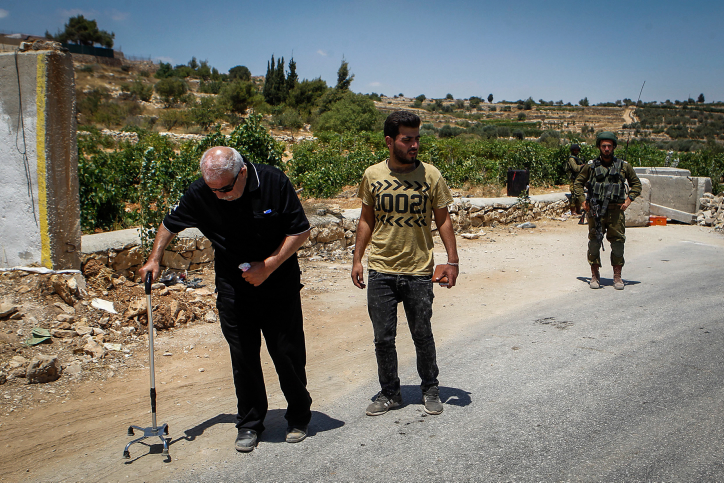The occupation allows us to demand Palestinians show their identification cards at a whim. It allows us to slap, shove, or shoot them if necessary — even if they are the same age as our fathers or young enough to be our children.
By Alon Mizrahi
Only last night, once I sat down after a long day, did the memories come flooding back. It was probably a video of a police officer beating a middle-aged Palestinian truck driver in East Jerusalem, which had gone viral, that triggered it. A reminder of just one story — one out of millions that reflect the absurdity of the occupation.
It was a routine drive in the Gaza Strip, the summer of 1992. A reservist driver and a squad commander sat in the front of an open-air 4×4 military vehicle. I was in the back. I cannot remember why or where we were driving. By the time we headed back toward our the unit, darkness had fallen.
We were driving, and the atmosphere was light and fun. It felt nice to leave the company’s base for assignments that had nothing to do with late-night arrests. As we drove on the road, a large Volvo truck pulled up behind us, speeding up and closing in. It got closer and closer and closer until it was only a few feet from the bumper. Whether the driver had his high beams on was unclear; our driver was certainly having a hard time seeing.
I motioned to the truck driver to slow down. I grabbed something, maybe an apple, and threw it at his windshield. He immediately inches even closer to our vehicle. That’s when it got scary.
The truck started to accelerate, then slow down. Accelerate and slow again. Each time it looked like we were about to be hit. I cocked my weapon, wondering to myself whether I was really going to open fire into the windshield of a moving truck.
This continued for a few nerve-racking moments, after which we reached a junction and came to a stop. The truck parked behind us. We exited the vehicle and ordered the driver to step out of the car. He got out, looking like he had no idea what we were talking about. A 40-something-year-old man. And then: “Show us your ID card.” He immediately grabbed onto the door of the truck — a spitting image of the scene from the beating in East Jerusalem.

“You want me to put a bullet in your head?” my squad commander pushed him. And he kept holding fast to the door of the truck, growing smaller and smaller, paralyzed with fear. If we weren’t only three soldiers, it probably would have ended in physical violence. There is something about large groups of men that turns violence into a real possibility.
But all the anger and fear that I felt, that we felt with the sound and the large lights of the truck, disappeared when facing a frightened man whom we were not even sure wanted to harm us.
The idea that one can detain and physically harm a person who doesn’t have the right to respond is one of the most revolting aspects of human existence. Last night this memory came back to me. Just a small episode — there are thousands of them every day. I wasn’t very far from shooting a man who probably had young children and parents waiting for him back at home.
This situation, which has become so natural for us, just like for the police officer in East Jerusalem, allows us speak to an Arab from a position of superiority. As if we were his God, to demand his identification card, to slap him and shove him if necessary, even if he is the same age as your father or young enough to be your child. It is the most disgusting thing I carry with me from my army service.
Alon Mizrahi is a writer and a blogger at Local Call, where this article was first published in Hebrew. Read it here.
